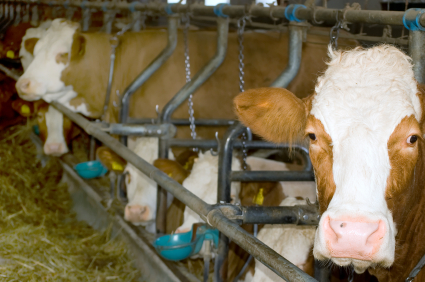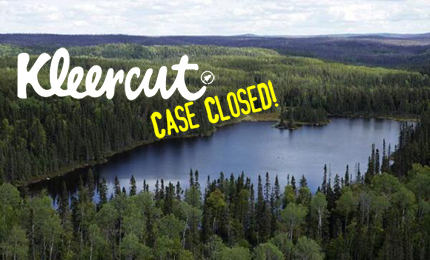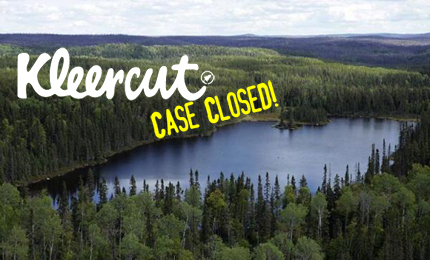Engaging in a bit of a lovefest, Greenpeace and Kimberly-Clark announced today that the paper-products giant has finally agreed to clean up its act. It will source the fiber for its tissue products, under brand names that include Kleenex, Scott, and Cottonelle, from “environmentally responsible sources,” including those that are FSC-certified and recycled. The company has also committed to end the purchase of non-FSC fibers from Canada’s Boreal forest by 2011. For its part, Greenpeace will drop the five-year-old Kleercut campaign that has long urged Kimberly-Clark to quit destroying the Boreal just so cold-sufferers can experience a softer blow.
In a fit of hard-earned mutual admiration, Kimberly-Clark VP Suhas Apte said, “We commend Greenpeace for helping us develop more sustainable standards,” while Greenpeace USA Forest Campaign Director Scott Paul called Kimberly-Clark a “responsible company” and said its “efforts are a challenge to its competitors. I hope other companies pay close attention.”
Those other companies include Georgia Pacific and Procter & Gamble, both of which Greenpeace is still pressuring on the sustainable sourcing front.
I contacted Michael Conroy, who wrote a book on corporate greening and grassroots campaigns called Branded (and whom I interviewed last year for Grist), to see what he made of the news. “This is a huge victory for global forests, the FSC, and Greenpeace,” he replied. “Kimberly-Clark is the world’s largest manufacturer of tissue paper products. The nature of the commitments, the specific timetables provided, and the Kimberly-Clark agreement to report back regularly on what proportion of the fiber sourced for its tissue has come from recycled and FSC-certified sources makes this a very credible commitment.”
Conroy also pointed out that the conclusion of Kleercut, which “used print media, social networking, YouTube videos, and incredibly creative ways to wear down Kimberly-Clark resistance, shows that the new tools for communicating with consumers are bringing even more power to civil society as we seek to transform the social and environmental practices of the world’s largest corporations.”
Ginger Cassady, senior campaigner for ForestEthics, was also pleased as punch by the news. As Cassady wrote in an op-ed for Grist this spring on Kimberly-Clark’s “Scott Naturals” line, “Kimberly-Clark has no trouble with innovation—if they can make an anti-viral tissue product, for god’s sake, they can make Kleenex with 100 percent post-consumer recycled content.” Angry that the company was still “wiping away ancient forests to make Kleenex,” Cassady used that piece to advise consumers to avoid the distraction of a single product line and keep their eyes on the entire company.
The company’s new policy, she told me today, “is among the strongest in the world … truly impressive.” Along with Greenpeace, she says she hopes the move by Kimberly-Clark will influence other companies. “ForestEthics congratulates Greenpeace and allies for a campaign well run,” she said.
In short, it’s an ugly situation with a hugfest ending — as evidenced by this goofy Greenpeace video:




